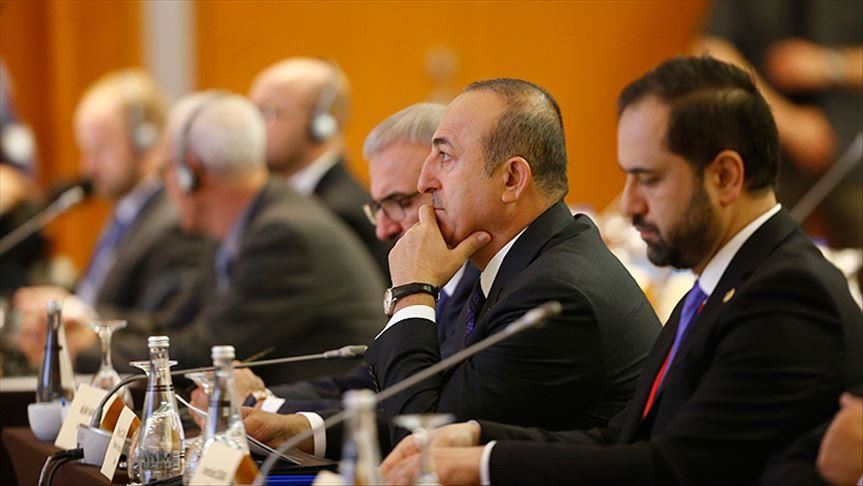Turkey: France can't lecture us on genocide, history
France should account for its own dark history in Algeria and Rwanda, says Turkish foreign minister

ANTALYA, Turkey
France is the last country which could lecture Turkey on genocide and history, Turkey's foreign minister said Friday, blasting a French declaration this week on the events of 1915 between Turkey and Armenia.
"France should mind its own dark history in Rwanda and Algeria," Mevlut Cavusoglu said at a NATO meeting in the Mediterranean province of Antalya.
During their struggle for independence from French colonial rule, some 1.5 million Algerians were martyred, while hundreds of thousands more were injured, went missing, or were forced from their homes.
Algeria has repeatedly asked France to acknowledge its colonial-era crimes.
France had supported Rwanda’s Hutu-led government, including arms and military training, which
Cavusoglu also stressed that France’s declaration conflicts with the French constitutional court, adding that it is not politicians’ duty to pass
In making the declaration, “unfortunately, your president [Emanuel Macron] was defeated by populism,” he added.
Turkey's position on the events of 1915 is that the deaths of Armenians in eastern Anatolia took place when some sided with invading Russians and revolted against Ottoman forces. A subsequent relocation of Armenians resulted in numerous casualties.
Turkey objects to the presentation of the incidents as "genocide" but describes the 1915 events as a tragedy in which both sides suffered casualties.
Ankara has repeatedly proposed the creation of a joint commission of historians from Turkey and Armenia plus international experts to tackle the issue.
Israel
Turning to Israel's recent controversial moves on the Golan Heights and West Bank, Cavusoglu said it had been encouraged by recent wrong decisions by the U.S.
"Israel must abandon its aggressive attitude and it needs to return to the two-state solution," he added.
"Nothing but a two-state solution would bring peace and into
Last month, U.S. President Donald Trump recognized the Golan Heights as an Israeli territory, which Israel occupied in 1967.
The move came after Trump recognized Jerusalem as the Israeli capital in late 2017 and moved his country's embassy from Tel Aviv to Jerusalem last year, triggering world outcry.
Jerusalem remains at the heart of the decades-long Middle East conflict, with Palestinians hoping that East Jerusalem -- occupied by Israel since 1967 -- might one day serve as the capital of a Palestinian state.
Anadolu Agency website contains only a portion of the news stories offered to subscribers in the AA News Broadcasting System (HAS), and in summarized form. Please contact us for subscription options.







